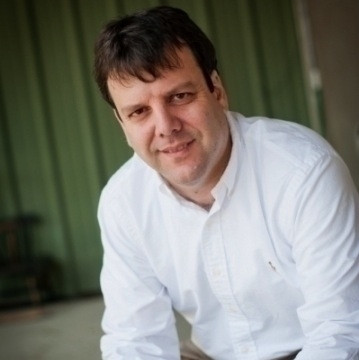Rob Horowitz: The Ties That Bind Help Us Weather the Storm
Tuesday, February 12, 2013
As the power returns and Rhode Islanders dig out from a fierce blizzard named Nemo—the latest example of extreme weather in this new era of climate change---the issue of climate change adaptation is beginning to move to the center of the political agenda in many states. In the states hardest hit by Superstorm Sandy, New Jersey and New York, Governors Christie (R-NJ) and Cuomo (D-NY)are not only continuing to focus on the immediate clean-up, but on how to make the improvements needed to best adapt to this ‘new normal’—a world of more intense, dangerous, damaging and expensive storms.
While expensive improvements in infrastructure and buying out homes in flood prone shore areas receive the lion’s share of the publicity, a less publicized, but no less important component of adaptation is strengthening community resilience. The Rand Corporation, a non-profit think tank which has done extensive research on the topic, defines community resilience as a measure of the sustained ability of a community to use available resources to respond, withstand and recover from adverse situations.” Eric Klineberg in a recent article on adaptation in "The New Yorker" describes it in a less wonky way, “…the people, places and institutions that foster cohesion and support.”
Research shows that communities and neighborhoods that have strong social networks and connections do better not only in surviving and recovering from storms, but in other important measures such as length of lives. This is the case even after controlling for wealth and other potential variables. That is why national policy-makers are now putting an emphasis on the importance of strengthening a community’s social infrastructure to improving disaster response. It is now a priority for the Federal Emergency Management Agency (FEMA) and the Department of Homeland Security.
Rhode Island’s close knit culture provides an advantage in this area. As Scott Mackay, political reporter for Rhode Island Public Radio, explained in a recent commentary, “In our state, the person who lives across the street cares whether you are sick or well, alive or dead. He knows what your daughter is like; he dated her before he married another neighbor’s cousin. When you need another guy to help coax it out of snow bank, he's there.”
As the climate scientists urge us to prepare for a future with more intense storms, Rhode Island can build on the strength of its already solid community connections to better weather the bumpy ride ahead. Our state’s elected officials and emergency management staff should more explicitly use this invaluable resource as they continue to work to improve storm response.
Rob Horowitz is a strategic and communications consultant who provides general consulting, public relations, direct mail services and polling for national and state issue organizations, various non-profits and elected officials and candidates. He is an Adjunct Professor of Political Science at the University of Rhode Island.
Related Articles
- Rob Horowitz: 5 Reasons for New Year’s Day Optimism
- Rob Horowitz: Immigration Reform Moves to the Front Burner
- Rob Horowitz: President Hillary Clinton? Not So Fast
- Rob Horowitz: 5 Things to Watch in the Vice Presidential Debate
- Rob Horowitz: Making College Affordable Must Be High Priority
- Rob Horowitz: President Obama is in Solid Position to Defeat Romney
- Rob Horowitz: Affordable Housing Bond is a Good Investment for RI
- Rob Horowitz: Millennial Turnout is a Key for Obama
- Rob Horowitz: President Obama’s Solid Popular Vote Win
- Rob Horowitz: Chuck Hagel is an Excellent Choice for Secretary of Defense
- Rob Horowitz: Momentum Behind New Action on Climate Change
- Rob Horowitz: Rhode Island Governor Lincoln Chafee Botches Pension Issue
- Rob Horowitz: Cicilline & Doherty is a Neck-and-Neck Race
- Rob Horowitz: Momentum Builds for Marriage Equality
- Rob Horowitz: Rhode Island Must Upgrade Its Workforce
- Rob Horowitz: Election Gives President Obama More Leverage on Fiscal Cliff
- Rob Horowitz: New Public Records Law a Step in the Right Direction
- Rob Horowitz: Romney’s Ill-Timed Foreign Policy Punch
- Rob Horowitz: Gemma’s Hail Mary
- Rob Horowitz: Obama Proposes Common Sense Gun Policies
- Rob Horowitz: Sandy Hook Tragedy a Chance for Common Sense Gun Legislation
- Rob Horowitz: ‘Fiscal Cliff’ Notes
- Rob Horowitz: Get Out the Vote
- Rob Horowitz: Obama and Romney Down to the Wire
- Rob Horowitz: Social Media Becoming a Force in Politics



